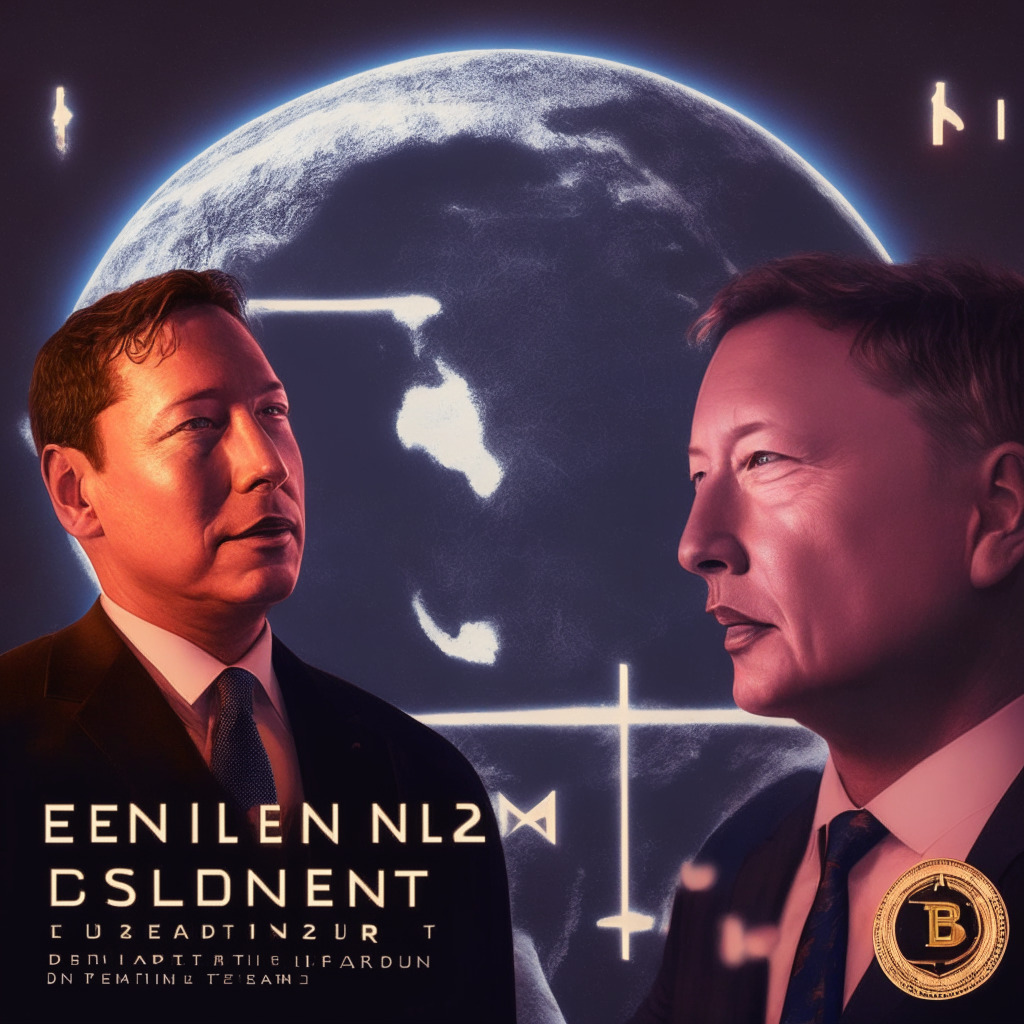In a recent virtual heart-to-heart, Elon Musk and Republican presidential nominee and Florida Governor Ron DeSantis had a conversation revolving around digital assets, touching on aspects such as Bitcoin, digital dollars, and Dogecoin. The Florida Governor is an ardent supporter of digital currencies, particularly Bitcoin, and believes that digital currency is a matter of civil liberties. He argues that attempts to regulate and restrict crypto by Washington are simply because they cannot exercise control over it.
As we approach the 2024 election season, DeSantis’ remarks echo those of his Democratic counterpart, Robert F. Kennedy Jr, who praised Bitcoin as an example of democracy and a method of ensuring checks and balances against authoritarian regimes. By recommending government oversight of digital assets, opponents of cryptocurrency might undermine individual freedom and financial independence.
DeSantis also highlights the ongoing regulatory enforcement actions targeted at the digital asset industry. He believes that the government aims to eliminate Bitcoin as it serves as an existential threat to their power. Consequently, DeSantis promises to stand against potential legislation to ban digital currencies like Bitcoin, and warns of the risk to Bitcoin’s survival if the current political climate persists.
On the topic of Central Bank Digital Currencies (CBDC), DeSantis remains critical. CBDCs, like stablecoins, are pegged to the value of sovereign currencies, but are issued and managed by governments or central banks instead of private companies. Federal Reserve Chairman Jerome Powell has said that a CBDC should receive written approval from Congress. However, DeSantis firmly opposes the idea of a CBDC, claiming that it will never happen during his tenure.
DeSantis emphasizes that a CBDC could be used as a tool for centralization, potentially controlling purchases that may be considered politically unfavorable or promoting certain ideologies, such as environmental standards or arms control. He views this as a significant shift in power from individual consumers to centralized authorities, putting a free society at risk.
Despite a delayed start and initial technical issues during the conversation, this discussion has provided crypto enthusiasts with an insightful look into the differing perspectives on digital currency’s future. The conflict lies in the balance between allowing digital currencies to operate with minimal oversight while safeguarding individual financial freedom, all the while ensuring a stable and secure market. As the world continues to evolve in technological advancements and political discourse, it remains to be seen how digital currencies will withstand regulatory scrutiny and maintain their essential role in driving innovation and financial independence for users across the globe.
Source: Decrypt




